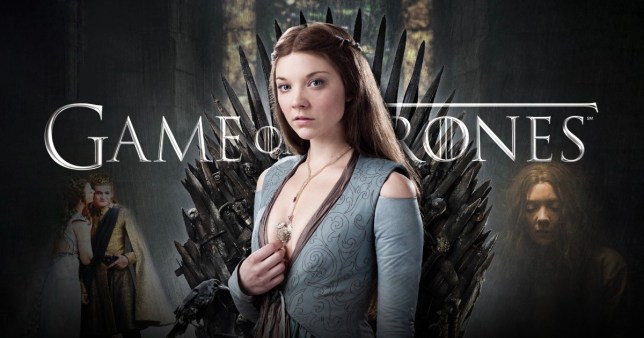Game of Thrones revolved around the titular competition for the royal houses of Westeros to sit on the Iron Throne. Everyone was a player. Some were successful, others were not…but no-one played the game of thrones better than Margaery Tyrell (Natalie Dormer).
Ambitious, coquettish and above all level-headed, Margaery entered the fray in season two of the show as the wife of Renly Baratheon (Gethin Anthony), who was vying to succeed his brother Robert (Mark Addy) as King.
After Renly’s murder and the subsequent annulment of their marriage, Margaery arrived in King’s Landing as a pitch-perfect match for the psychopathic child-king Joffrey (Jack Gleeson), backed by her formidable grandmother the Queen of Thorns (Diana Rigg), who had her sights set on imperial glory for House Tyrell after the fall of House Stark after the death of Ned (Sean Bean) for treason.
The nearest comparison to Margaery in the series at this point was Sansa Stark (Sophie Turner) the similarly ambitious but less politically nimble eldest daughter of her house.
But Margaery was different to Sansa – whilst Sansa learned, through loss and trauma, how to navigate the structures of Westerosi power, from her very inception Margaery seemed to thrill at political intrigue, she didn’t need to be taught. She was already the master.
She was consistently the smartest and most socially adept character in the show, managing to not only manoeuvre herself into the upper echelons of aristocracy as Joffrey’s Queen but also ensuring that a little something like the death of her husband and king wouldn’t demote her – she just married his brother (Dean Charles Chapman) instead.
The queen regent also made a spectacular foil for her bitter enemy, Cersei Lannister (Lena Headey). As a character, the Lannister queen was always more adept at dealing with a human enemy, whether that be the faith militant lead by the High Sparrow (Jonathan Pryce) or the woman vying to replace her in the affections of her son and subjects.
And, above all, it was just a genuine pleasure to watch Margaery at work on the screen, climbing the ladder of the show scene-by-scene, week-by-week, step-by-step.
Imbued with a mixture of regal elegancy and the thorned sexuality of a femme fatale, Dormer really shone in the role. Given its high-fantasy roots, Thrones was always chock full of genre-archetypes but was at its best when it gleefully subverted them.
In Margaery, it found its people’s princess, it’s Princess Diana, but dared to give us a peek behind the curtain; to show just what kind of person you had to be to survive, and thrive, in the cut-throat (literally) world of medieval politics.
Of course, it also helped that Margaery, like most of the female characters in the show, was never painted as a one-dimensional character. She was a softer evil than Cersei’s arch-villainess and Daenerys Targaryen’s genocidal tendencies sure, but she was not below manipulating anyone to get what she wanted.
She manipulated the closeted Renly into a relationship, turned a blind eye to Joffrey’s more homicidal inclinations to get near the Iron Throne and, after he was assassinated, used sex to turn her third husband, Tommen, against his mother.
But ultimately, Margaery’s inability to understand the lengths Cersei would go to to protect her family proved to be her undoing as she was killed in the destruction of the Sept of Baelor with wildfire at the end of season six.
It was the Cersei’s endgame move and practically incinerated the massive deck of cards stacked against her, clearing the way to the Iron Throne.
But that’s another thing…after her death, the show never managed to fill the hole Margaery left.
After Cersei had cleared such an insurmountable obstacle, there was really nothing left for her character to do apart from basking in her victory and drink wine (which she did, a lot, in season eight) as the fight for the survival of the world took part in the far-flung North.
Removing Margaery from Cersei’s path also cleared most of her motivation – she had already won, gaining everything she had ever wanted (but losing her family in the process).
This could have been explored, but the show had bigger fish to fry and with an expanding storyline Cersei had no emotional stake in (and her character always worked best when motivated by emotion), she was sidelined for most of the last season.
In the grand scheme of the show, Margaery’s exit does make sense, as we now know writers David Benioff and DB Weiss were basically just clearing house in anticipation of their two last, shorter seasons leading into their ending.
Which is fine. But the subtleties behind Margaery’s characterisation and motivations were sorely missed in seasons seven and eight, although thanks to hindsight we can see her loss was a larger indication that the show was getting ready to chuck all sophistication out the window in anticipation of the finale.
Ultimately, the death of Margaery is symbolic of the ending of an era in Game of Thrones, where the biggest show in the world stopped being a character piece defined by its intricate subversion of fantasy tropes and descended into a plot-heavy race to the finish line.
Cersei once said that when you play the game of thrones you live, or you died. Well, she may have died…but nobody played the game better than Margaery Tyrell.
Game of Thrones is available to stream via NOW TV.
Got a story?
If you’ve got a celebrity story, video or pictures get in touch with the Metro.co.uk entertainment team by emailing us celebtips@metro.co.uk, calling 020 3615 2145 or by visiting our Submit Stuff page – we’d love to hear from you.
MORE: Maisie Williams shuts down Game Of Thrones season 8 alternate endings rumours



















![[Book Review] The Blade Itself (The First Law Trilogy) by Joe Abercrombie](https://bendthekneegot.com/wp-content/uploads/2018/01/1516047103_maxresdefault-218x150.jpg)




















